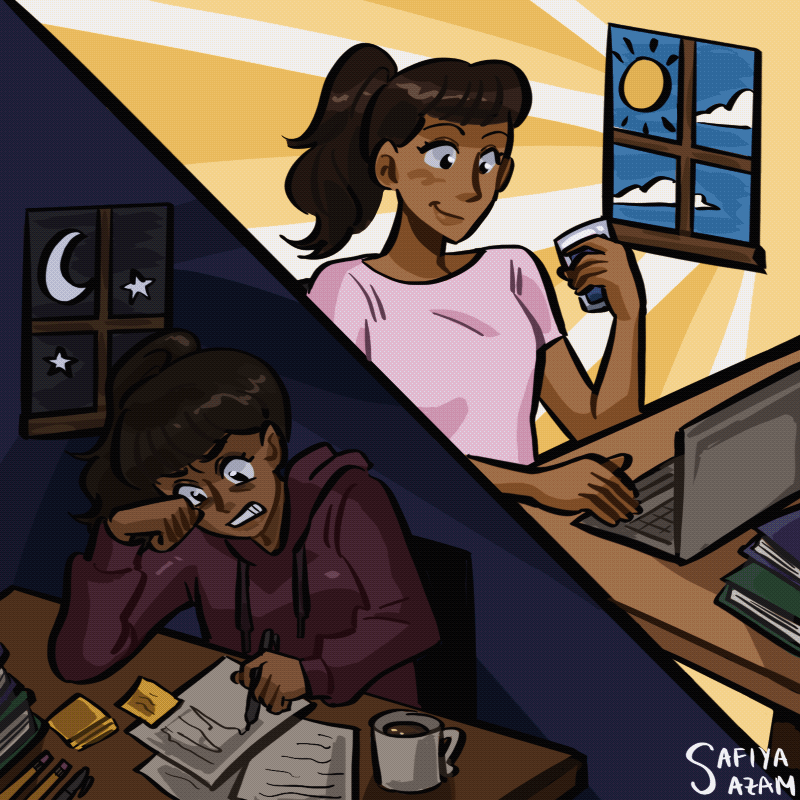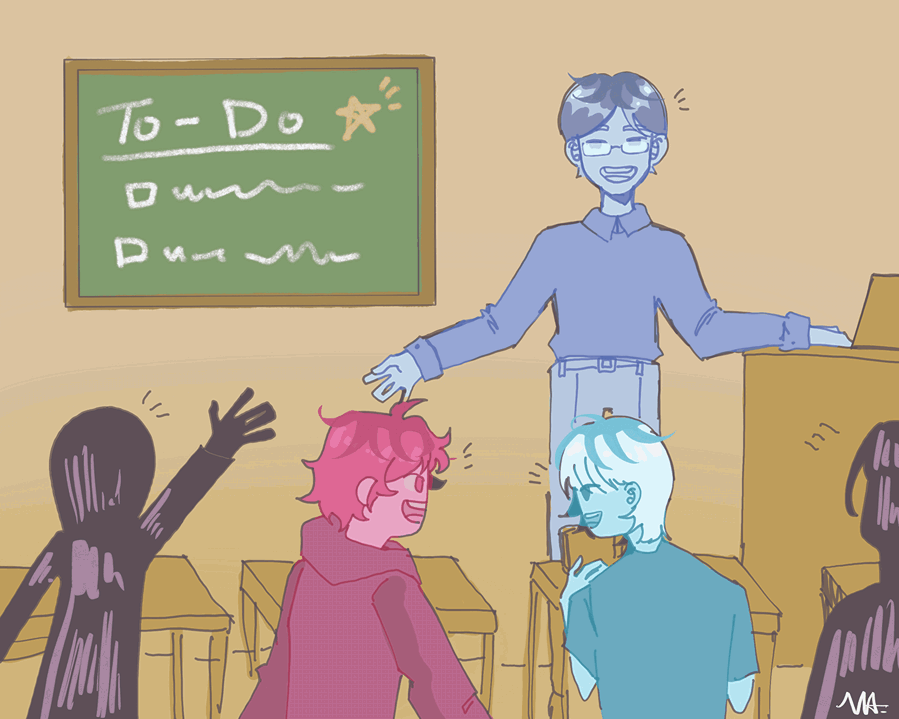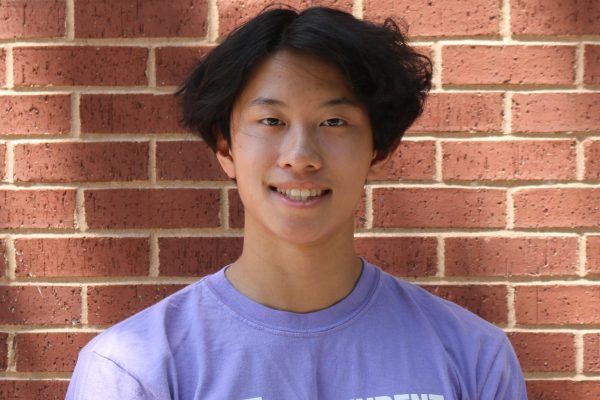Head hunched over my desk, earbuds playing “lofi hip hop radio,” I furiously scribble the answer to a tedious derivative.
Although I had studied the night before, it is nice to feel an extra confidence boost prior to an assessment, so doing these practice problems before my test helps. However, as I move on to the next problem, my thought process ends abruptly with my teacher snapping me out of my trance.
“This doesn’t look like your essay,” my teacher says.
As I reluctantly open my English essay, I sigh, knowing I could later write this essay at home as it’s not even due until 11:59 p.m. the next day.
In many classes, teachers have the expectation that their students should be working on their class or listening to their lectures. Although teachers may enforce these rules to ensure students stay caught up, often these rules create unproductivity.
I often work on assignments that are not a part of the class that I am in because they serve to benefit me more than the current class. If I am scoring consistent high 90s on quizzes and tests while self-studying in a class, it makes more sense to work on a subject where I am struggling.
One of my favorite classes was where my teacher gave a lecture every class and the occasional class activity. I enjoyed this class because he allowed students to work on their own. If a student felt as if they needed the lecture, they could tune in to his presentations. If not, students were allowed to work at their own pace, and he even had videos for students that learned better that way.
Teachers frequently say the content students are learning is important for everyone to hear and not something we should miss. Additionally, they say that if a student is not focusing on the lecture, teachers often will not answer their questions because they need to pay attention to the content. While this expectation may be reasonable, if the student already knows the content or can learn it faster by themselves, they shouldn’t be held back to match the pace of the class.
However, not all teachers agree.
“Just because you have a 98 in a class doesn’t mean that you can necessarily put in your headphones and work on something personally gratifying like a college application,” Coppell High School business teacher Richard Chamberlain said. “Students should respect the 90 minutes that a teacher has for you to try to excel at the highest level and nobody should opt out simply because they feel that they have learned what they believe is the correct threshold.”
Although it is true that students can always improve their skills and knowledge in a particular subject, there could be subjects that the students are falling behind in that they would rather work on, or activities that may have a greater positive impact on the student’s life. However, teachers choosing exactly what a student should be doing at all times during the class strips independence from students and does not allow them to manage their own time.
Even if a student has fallen behind in class, it is not the teacher’s responsibility to ensure that the student is taking the initiative to actively catch up. Instead, the teacher should both teach their content to students who want to listen, and be available for students that have fallen behind. Students should have the options to either fall behind in their classes or be proactive about their work. This way, students have the opportunity to determine the outcome of their choices, creating both independent and driven students, rather than students who need to have their hands held by teachers every step of the way.
“The greatest benefit of allowing students more autonomy is that they are able to better explore their learning needs and curiosities,” CHS senior Kushal Kantharaju said. “We are often trapped into a schedule that forces us to be in certain classes for seven hours a day which is not the ideal learning experience for the majority.”
Expecting students to work on certain individual activities during class may exacerbate this trapped schedule, where kids are not optimizing their learning experience. Giving students the ability to choose how they spend their time promotes individualism and allows them to personalize their learning. If that is taken away from students, class becomes unproductive, the opposite of what school should be.
Follow Jayden (@jchuiiii) and @CHSCampusNews on X.

















